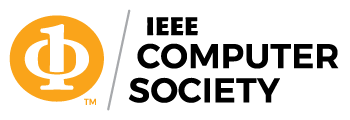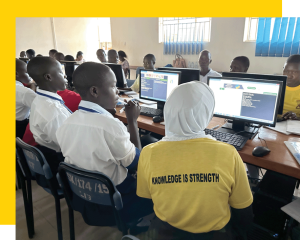 As I reflect back on 2023, I am amazed at the impact of this community. Together, we have accomplished so much, striving to make the world a better place through our work. Whether we’re increasing investments in diversity and inclusion or spurring on the next generation of technological solutions, we strive each day to do better than the one before and to give back to this global community who has given us so much.
As I reflect back on 2023, I am amazed at the impact of this community. Together, we have accomplished so much, striving to make the world a better place through our work. Whether we’re increasing investments in diversity and inclusion or spurring on the next generation of technological solutions, we strive each day to do better than the one before and to give back to this global community who has given us so much.
In considering our successes this year, I am profoundly proud of our growing commitment to diversity and inclusion. To date, we have applied USD$500,000 to the D&I Fund of the IEEE Foundation, ensuring robust resources to engage all communities in computer science and engineering. But it’s not just about the donation: We also have supported numerous programs aimed at expanding access to computer science and engineering for underserved populations. In addition, we addressed our governance, renewing our commitment to empower and diversify our volunteer base and directed the Nominating Committee as such.
This year, we also reiterated the importance of emerging technologies. We witnessed a significant increase in the number of proposals submitted to the Emerging Technology Fund, and we were able to award larger-dollar grants to bolster big visions for fresh solutions.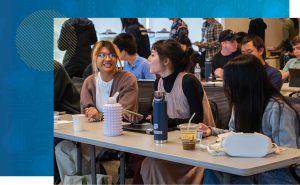
As computer science and engineering continues to advance, the diverse expertise and relationships of IEEE Computer Society members will enable new opportunities to better serve our world. I hope you will join me in continuing to thank leaders in the field for guiding us and encouraging burgeoning talent to get involved. Because it is in joining together that we can make the difference.
Serving as the Computer Society President has been nothing short of an honor. The computer science and engineering community is shaping the future, and IEEE Computer Society members stand at the heart of that evolution. Thank you for a wonderful year, and may your professional journey continue to lead you back to the Computer Society.
Sincerely,

Nita Patel
2023 President
2022 Executive Committee
CONVENING GLOBAL LEADERS
As a pivotal part of its mission, IEEE CS assembles the global computer science and engineering community to facilitate the discussions, research, and collaborations that advance the field. Through leadership, technical groups, and other member activities, the Computer Society supports growth and development.
Board of Governors
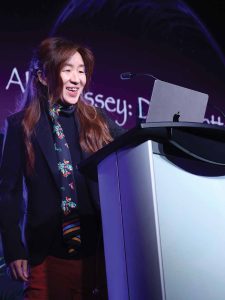 This year, the Board of Governors focused on deepening engagement and enhancing existing programs and initiatives in the following ways:
This year, the Board of Governors focused on deepening engagement and enhancing existing programs and initiatives in the following ways:
- Strategic Focus: This year, the Board of Governors emphasized representing members and the field of computer science and engineering; inspiring strategy in support of the community; guiding operations to better the field; and sharing perspectives to enhance IEEE CS activities.
- Efficient Governance: The Board of Governors approved new efficiencies in governance to simplify society oversight, including streamlining to one Vice President on the Board of Governors beginning in 2025.
- Inclusive Engagement: Diversity and inclusion (D&I) remained a top priority for the Board this year, and they quadrupled the Society’s contribution to its D&I Fund for 2023 activities. There was also a continued focus on ensuring diverse representation in the volunteer base, with the Nominating Committee placing additional attention on D&I as it considered a slate of candidates.
- Next-Generation Leadership: In 2023, the Board of Governors launched a more targeted focus on cultivating the next generation of computer science and engineering leaders. The Society sought to engage young professionals through the Student & Young Professional Activities Committee (SYP) and new initiatives like the “20 in their 20s” recognition.

IEEE CS Technical Communities
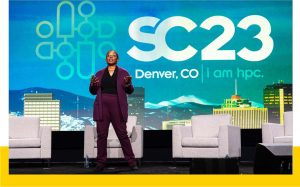 IEEE CS Technical Communities nurture the development of computer science and engineering. Members in these communities organize conferences, engage with publications, influence the development of standards, develop programs for student activities, and create added resources with the financial backing and staff support of the IEEE Computer Society. They support evolving technology areas, including cloud computing; computational life sciences; data engineering; pattern analysis and machine intelligence; microprocessors; high-performance computing (HPC); and software engineering.
IEEE CS Technical Communities nurture the development of computer science and engineering. Members in these communities organize conferences, engage with publications, influence the development of standards, develop programs for student activities, and create added resources with the financial backing and staff support of the IEEE Computer Society. They support evolving technology areas, including cloud computing; computational life sciences; data engineering; pattern analysis and machine intelligence; microprocessors; high-performance computing (HPC); and software engineering.
Leading the Way
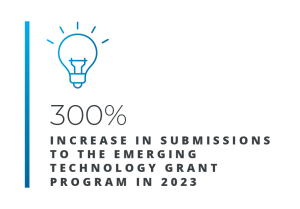 In terms of technical leadership, this year, IEEE CS took action to address what’s next in the field; for example:
In terms of technical leadership, this year, IEEE CS took action to address what’s next in the field; for example:
Technology Predictions - Each year, a committee of technical experts convenes to forecast how technology will unfold. 2023 predictions spoke to 19 different advancements, including: remote healthcare and wearables; augmented reality; software for the Edge2Cloud continuum; open hardware; AI-assisted DevOps; 3D printing in personalized healthcare; generative AI; IT for sustainability; autonomous driving; digital distributed manufacturing; trusted computing; huge graph neural networks; adaptive, generative pharmaceuticals; autonomous robots and brain-machine I/F; artificial general intelligence; global digitalization of monetary transactions; space ITC; sustainable space manufacturing; and disinformation detection/correction.
At year’s end, the committee noted that progress was made in each area in 2023, with AI-based solutions ranked highest in their evaluation
“2023 was a huge year for AI in all forms. Its influence on a wide variety of other technological solutions created a ripple effect that has launched a whole new set of possibilities.”
Dejan Milojicic 2014 IEEE Computer Society President, IEEE Fellow, HPE Fellow and VP at Hewlett Packard Labs
Emerging Technology Activities
During IEEE Education Week in April, IEEE CS announced the 10 emerging technology programs funded to foster further understanding and development of newer technologies within the computing industry. Grants of upwards of USD$30,000 were awarded to:
- AI Perceptions Workshop Series, which strove to educate stakeholders about AI, gather cross-cultural perspectives on ethical and societal concerns around it, and explore future implications and applications of the technology.
- Metaverse Hackathon, which helped foster greater understanding in the use of new and futuristic technology in applications such as healthcare, smart cities, transport, and more.
- Cybersecurity Capture the Flag (CTF) Event, which worked to increase cybersecurity awareness and engagement among K-12 students.
- Digital Platforms and Societal Harms Tech Forum, which aimed to identify research and policy advances to detect, measure, and mitigate societal harms such as hate speech, extremism, exploitation, disinformation and misinformation on digital platforms.
These programs helped to advance community discussions around new areas of technical interest and began to shape how IEEE CS can support their evolution.
“Emerging tech has transformative power: the power to solve business problems, the power to broaden accessibility, the power to better connect, and so much more. To be able to support community efforts that advance emerging technologies is a huge win, not only for the computing community, but the larger, global ecosystem as well.”
Nita Patel, 2023 IEEE Computer Society President
COMMUNITY OF LEADERS
Overall, IEEE CS advances the field by assembling global leaders to address challenges and new areas of opportunity. Through this facilitated collaboration across a community of nearly 400,000, in 2023, IEEE CS leaders addressed the burgeoning topics in areas as diverse as HPC, AI, quantum computing, and more.
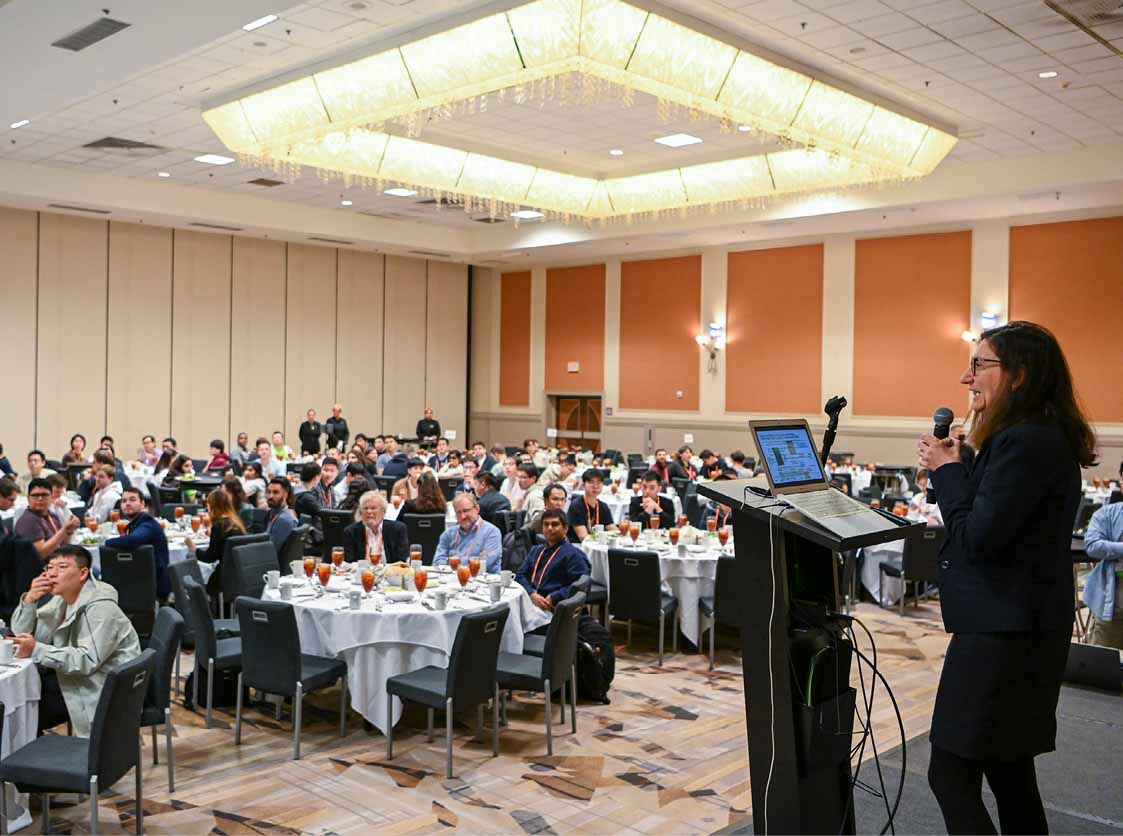
IEEE CS Leaders Recognized in TIME100 Most Influential People in Artificial Intelligence List
A testament to the impact of the global IEEE CS community, eight IEEE CS authors, speakers, and leaders were named to the 2023 TIME100 Most Influential People in Artificial Intelligence (AI) List. The inaugural TIME100 AI List honors the 100 most influential people in AI around the world and recognized:
- Yejin Choi | Professor, University of Washington /CVPR 2023 and CVPR 2020
- Pushmeet Kohli | Vice President of Research, Google Deep Mind/ CVPR 2020
- Yann LeCun | Chief AI Scientist, Meta/ ICCV 2023
- Fei-Fei Lei | Professor, Stanford University/ CVPR 2021
- Arvind Narayanan | Professor of Computer Science, Princeton University/IEEE Computer Society Digital Library (CSDL) Author
- Dan Hendrycks | Executive Director, Center for AI Safety/ CVPR 2022
- Elham Tabassi | Associate Director of Emerging Technologies, NIST/ Former IEEE CS Member and IEEE CS Author
- Raquel Urtasun | CEO and Founder, Waabi/ CVPR 2023
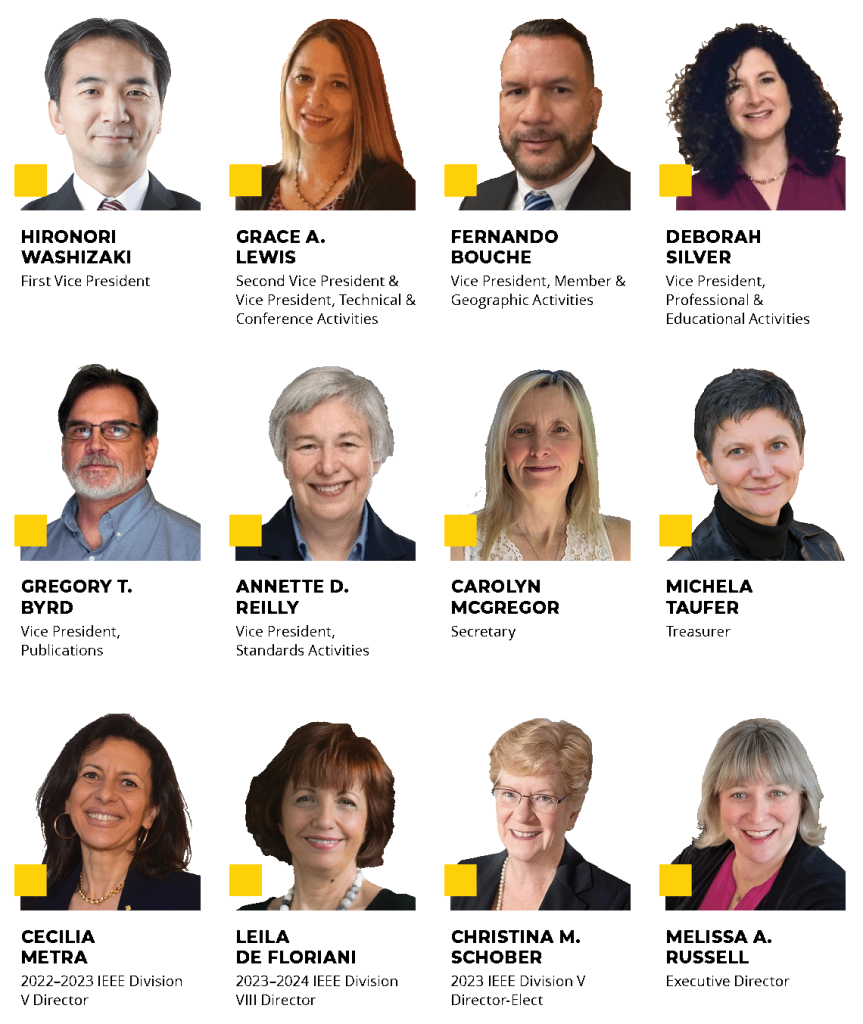 The Board of Governors and Executive Committee oversee the direction and strategy of the IEEE Computer Society.
The Board of Governors and Executive Committee oversee the direction and strategy of the IEEE Computer Society.
Exceptional contributions were made in 2023 by three BoG appointed Ad Hoc committee chairs. Their invaluable efforts and unwavering commitment helped advance IEEE CS special focus areas.
- Ad Hoc on the Computer Society in 2050—Chair: Hironori Washizaki, 2024 IEEE CS President-Elect
- Ad Hoc Committee on Scientists-At-Risk—Chair: Nils Aschenbruck, 2024 Second Vice President
- Development & Engagement Advisory Board—Chair: Michela Taufer, 2023 Treasurer
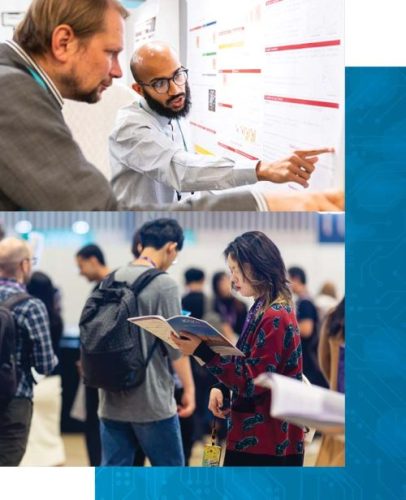
IEEE CS Announces Launch of SustainTech Expo and Leadership Forum
November 2023 brought with it the announcement of a new global event from IEEE CS: SustainTech Expo and Leadership Forum. Aimed to bring together leading industry change-makers for discussions and innovative solutions, SustainTech will focus on sustainable technology impacting buildings and factories and convene 27-28 August 2024, in San Diego, California.
Learn more about IEEE SustainTech Expo.
Engaging computer engineers, scientists, academia, and industry professionals from all areas of computing, IEEE CS strengthens and empowers the global community through conferences, publications, and programs, setting the standard for the education and engagement that fuels continued advancement.
In 2023, conferences and publications excelled, again capturing top industry rankings. But not one to rest on its laurels, the IEEE CS community continued to brainstorm and expand impact through new products and services launching in 2024. Highlights include the planned SustainTech Expo and Leadership Forum and launch of IEEE Transactions on Privacy, among others.
Conferences
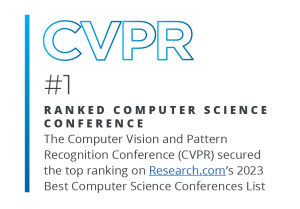 Setting the standard for excellence in computer science and engineering, IEEE CS provides conferences that convene global leaders to advance the field. These events provide a forum for the research dissemination, technical discussion, collaboration, and connection that spark innovative ideas and expand the positive impacts of computer science and engineering. Specifically, IEEE CS events are:
Setting the standard for excellence in computer science and engineering, IEEE CS provides conferences that convene global leaders to advance the field. These events provide a forum for the research dissemination, technical discussion, collaboration, and connection that spark innovative ideas and expand the positive impacts of computer science and engineering. Specifically, IEEE CS events are:
- Internationally Renowned: In 2023, these events received the highest honors in industry rankings, with the Computer Vision and Pattern Recognition Conference (CVPR) touted as the top computer science event by Research.com. Overall, 31 IEEE and IEEE CS conferences were recognized as the premier events in the field.
- Technology Forward: IEEE CS conferences seek to bridge the gap between new scientific advancements and the development of an industry surrounding them. For example, the IEEE International Conference on Quantum Computing and Engineering, also known as Quantum Week, assembles more than 400 program hours to address original research, innovations, and insights in quantum computing and engineering.
- Industry Bellwethers: Globally, computer science and engineering leaders look to IEEE CS conferences and forums as an indicator of new research and technology developments. IEEE CS events serve as predictors of the trends to come. For instance, CVPR 2023 revealed the top five trends in computer vision: more realistic technology; autonomous ecosystems; convergence of image and language models; cross-disciplinary collaboration; and diversity and inclusion to mitigate bias. These areas remained topics to watch throughout the course of the year and will set the trajectory for 2024 programs.
- TechX Brings Out the Best of the Student Chapter Experience: IEEE CS continues to impact the lives of computing students around the globe through its TechX program—a series of local events that combined workshops, panels, soft skill development, compelling competitions, networking opportunities, and other interactive activities for the benefit of computing students.
Above all, IEEE CS conferences draw leaders in computer science and engineering to problem-solve and shape the future direction of the field.
“IEEE Quantum Week explores the full potential of quantum computing and aims to redefine the boundaries of what’s computationally possible. This groundbreaking potential isn’t just about technology – it’s about shaping the future of numerous fields.”
― Hausi Müller, General Chair, IEEE Quantum Week 2023

Publications
IEEE CS publications drive discovery for the computer science and engineering community. With 926,000 highly rated peer-reviewed papers published in the Computer Society Digital Library (CDSL), IEEE CS offers the most robust archive of global research available to the community. In addition to breadth of information, IEEE CS publications also offer the highest caliber of research, influencing the global scientific landscape in the following ways:
- Highest Citations: IEEE CS journals consistently hold top spots as relates to Journal Impact FactorTM (JIFTM) rankings. In 2023, IEEE CS announced that IEEE Transactions on Pattern Analysis and Machine Intelligence earned the top spot among artificial intelligence journals and secured the highest ranking of all IEEE CS publications. In addition, 11 IEEE CS journals hold the coveted top impact factor ranking in their specialty field.
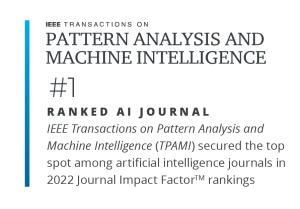 Global Policy Implications: IEEE CS contributes to global work efforts that shape policy outcomes in computer science and engineering. For instance, in December 2023, it became apparent that the broad utilization of the IEEE International Roadmap for Devices and Systems (IRDS) is influencing the various Chips Acts worldwide. “Initiatives in Europe, Japan, and the U.S. are engaging the IRDS roadmap for guidance as their activities develop,” said Tom Coughlin, President of IEEE.
Global Policy Implications: IEEE CS contributes to global work efforts that shape policy outcomes in computer science and engineering. For instance, in December 2023, it became apparent that the broad utilization of the IEEE International Roadmap for Devices and Systems (IRDS) is influencing the various Chips Acts worldwide. “Initiatives in Europe, Japan, and the U.S. are engaging the IRDS roadmap for guidance as their activities develop,” said Tom Coughlin, President of IEEE.- Open Access Availability: IEEE CS’ Gold Open Access (OA) journal, the IEEE Open Journal of the Computer Society (OJ-CS), is dedicated to publishing high-impact articles on emerging topics and trends in all aspects of computing. In addition, all IEEE CS publications offer authors the opportunity to publish OA. In 2023, IEEE reached an important milestone in publishing over 100,000 open access articles overall.
IEEE CS publications have supported the growth of computer science and engineering for the past 75 years and will continue to aid in the evolution of the field into the future.
“International cooperation is key for speeding up technological innovation. The IRDS plays a decisive role in this area and helps identify possible next generation and emerging technologies in advanced computation and functionalities for future systems and applications. This joint effort will be instrumental for the new electronics industry and in the digitalization of many domains to reduce footprint, as well as the electronic monitoring targeting societal challenges using sustainable electronic technologies.”
― Francis Balestra of SiNANO, the IRDS International Roadmap Committee representative for Europe

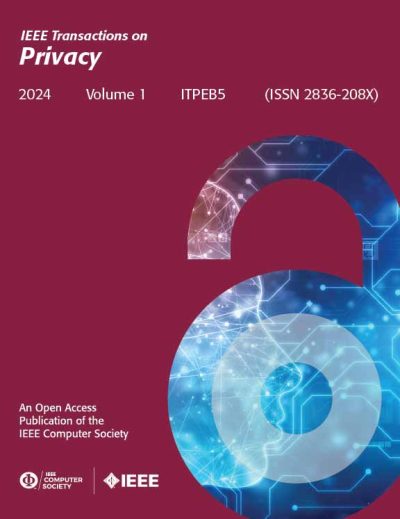
IEEE CS to Launch New Publication, IEEE Transactions on Privacy, in 2024
In December 2023, IEEE CS announced the launch of IEEE Transactions on Privacy, which will begin accepting submissions in January 2024. Led by inaugural editor-in-chief Christopher W. Clifton from Purdue University, IEEE Transactions on Privacy is a fully open access, rigorously peer-reviewed forum for rapid publication of high-impact articles related to privacy and data protection.
For more information on submissions, access the publication’s “Write for Us” page.
SHAPING THE FUTURE
As IEEE CS looks to the future, diversity and inclusion, emerging technologies, and young professional advancement take center stage. In 2023, the society expanded its efforts in these areas to more strategically align new programs with the evolving needs of the community.
D&I Initiatives
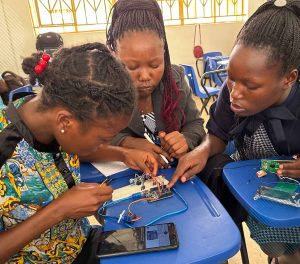 As a part of the IEEE Foundation, IEEE CS’ D&I Fund was designed to support projects and programs that positively impact diversity, equity, and inclusion throughout the computer engineering and computer science communities. For 2023, D&I grant submissions grew more than 40% year over year, with 124 potential programs proposed. These programs included the following, among others:
As a part of the IEEE Foundation, IEEE CS’ D&I Fund was designed to support projects and programs that positively impact diversity, equity, and inclusion throughout the computer engineering and computer science communities. For 2023, D&I grant submissions grew more than 40% year over year, with 124 potential programs proposed. These programs included the following, among others:
IEEE Learn-Compute Camp
India has about 700 tribal groups throughout the country, called “Scheduled Tribes.” For students coming from these rural areas, the journey from tribal lands to bustling urban cities can seem challenging, especially when it comes to technology.
To help with this transition, the IEEE Computer Society (CS), along with KIL-Kotagiri, sponsored the IEEE Learn-Compute Camp 1.0, hosted at Kengari Panchayat Nilgiris, Govt Higher Secondary School 23-24 June 2023. Enabled by a grant from the Diversity and Inclusion (D&I) Fund of the IEEE Foundation, this camp was established for the Kotas, an ethnic group indigenous to the Nilgiris mountain range in Tamil Nadu, India.
“The first camp was basically to give awareness of cyber-safety and how these pre-university kids can use social media, Internet, and email more safely than before,” said Ramneek Kalra, cloud support engineer at Amazon Web Services, and program lead for the event. “With determination and knowledge obtained from camps like this one, pre-university students can thrive in their new urban environments and build a bright future.”
You Belong in IEEE CS
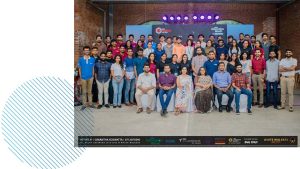 Made possible by a Diversity and Inclusion (D&I) Grant from the IEEE Computer Society, the You Belong in CS (UBCS) program represents the belief that everyone, regardless of their background, gender, or location deserves an equal opportunity to thrive in the world of computer science and technology. This program consisted of a series of events: a STEM workshop series geared toward high school students in rural Sri Lanka; the Code with Women in Engineering (WIE) 2022 program, a collaboration with the IEEE Sri Lanka Section WIE Affinity Group; and an IEEE Education Week Sri Lanka event including a STEM exhibition and a seminar on higher education pathways.
Made possible by a Diversity and Inclusion (D&I) Grant from the IEEE Computer Society, the You Belong in CS (UBCS) program represents the belief that everyone, regardless of their background, gender, or location deserves an equal opportunity to thrive in the world of computer science and technology. This program consisted of a series of events: a STEM workshop series geared toward high school students in rural Sri Lanka; the Code with Women in Engineering (WIE) 2022 program, a collaboration with the IEEE Sri Lanka Section WIE Affinity Group; and an IEEE Education Week Sri Lanka event including a STEM exhibition and a seminar on higher education pathways.
“UBCS is more than a project; it's a manifestation of my core values and aspirations,” said project leader Chamika Sudusinghe, a Ph.D. student at the University of Illinois Urbana-Champaign in Champaign, Ill., U.S.A. “Collaboration has been key; when we collaborate with other organizations that share similar visions and objectives, we have the potential to surpass our targets and create an even more profound positive impact on society.”
Applying Atomic Habits to Diversity, Equity, and Inclusion in Teaching
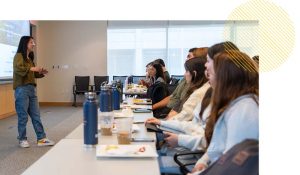 James Clear’s Atomic Habits surmises that small shifts in daily behavior allow individuals to get 1% better every day. With the support of an IEEE Computer Society Diversity & Inclusion (D&I) Fund grant from the IEEE Foundation, this concept has been translated to the classroom environment.
James Clear’s Atomic Habits surmises that small shifts in daily behavior allow individuals to get 1% better every day. With the support of an IEEE Computer Society Diversity & Inclusion (D&I) Fund grant from the IEEE Foundation, this concept has been translated to the classroom environment.
Seeking to create a mentoring circle of faculty and doctoral students who are working toward more inclusive teaching spaces for their students, project lead Akesha Horton, director of curriculum and instruction, Luddy School of Informatics, Computing, and Engineering at Indiana University in Bloomington, Ind., U.S.A. and her colleague, Nathan Ensmenger, informatics graduate director and associate professor at the university, established a program to help uncover slight changes that can lead to a more inclusive teaching environment. The goals of this work centered on achieving better informed and equipped faculty and future faculty, improving course syllabi and lesson plans, and developing sample lesson plans/case studies that illustrate the techniques and processes required to develop more inclusive course materials.
“By focusing on the value of persistent and incremental change, all of our participants were empowered to make at least one change to their course practices and/or syllabus,” said Horton.
Emerging Technology Initiatives
As computer science and engineering integrates into an increasing range of vertical markets, demands for collaboration continue to rise. These technologies are now becoming foundational parts of a wide range of novel solutions. As such, it’s not surprising that in 2023, Emerging Technology grant submissions rose more than 300%. New initiatives included:
Digital Platforms and Societal Harms
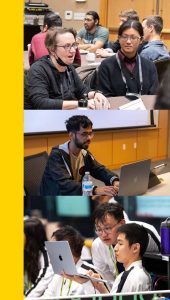
Designed to bring together global technology leaders, government officials, policy makers, researchers, and computer science professionals to tackle the challenges around hate speech; extremism and exploitation; and misinformation and disinformation, the 2023 Tech Forum on Digital Platforms and Societal Harms aimed to increase knowledge around key issues, expand awareness of ethical obligations, and identify the technical solutions that can help.
Drawing in-person and virtual attendees, this forum encouraged dialogue and debate around ways to better support truth in technology.
“The harm inflicted through hate speech, extremism, misinformation and disinformation on digital platforms is staggering,” said Dr. Andre Oboler, CEO, Online Hate Prevention Institute, Australia, and 2023 Tech Forum Co-Chair. “Consider the emotional, mental, or physical toll that these harmful expressions can inflict on us individually, and as a society. Collectively solving these issues requires work from government, industry and technologists, and convening these stakeholders to rally around solutions is critical to the future of our society.”
Cybersecurity Benchmarks
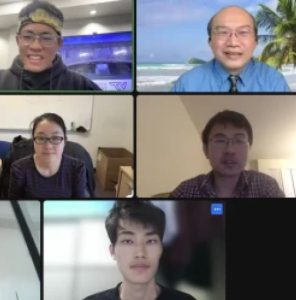 Funded with an Emerging Technology Grant, the IEEE Trojan Removal Competition encouraged participants to explore solutions that can enhance the security of neural networks. By developing general, effective, and efficient white box trojan removal techniques, participants contributed to building trust in deep learning and artificial intelligence, especially for pre-trained models in the wild, which is crucial to protecting artificial intelligence from potential attacks.
Funded with an Emerging Technology Grant, the IEEE Trojan Removal Competition encouraged participants to explore solutions that can enhance the security of neural networks. By developing general, effective, and efficient white box trojan removal techniques, participants contributed to building trust in deep learning and artificial intelligence, especially for pre-trained models in the wild, which is crucial to protecting artificial intelligence from potential attacks.
With 1,706 valid submissions from 44 teams worldwide, six groups successfully developed techniques that achieved better results than the state-of-the-art baseline metrics published in top machine-learning venues. The benchmarks summarizing the models and attacks used during the competition are being released to enable additional research and evaluation.
“We’re hoping that this benchmark provides diverse and easy access to model settings for people coming up with new AI security techniques,” shared Yi Zeng, the competition chair and research assistant at Bradley Department of Electrical and Computer Engineering, Virginia Tech, Blacksburg, Va., U.S.A. “This competition has yielded new data sets consisting of trained poisoned pre-trained models that are of different architectures and trained on diverse kinds of data distributions with really high attack success rates, and now developers can explore new defense methods and get rid of remaining vulnerabilities.”
Professional Development
The computer science and engineering profession continues to expand. As solutions such as generative AI take shape and new algorithms permeate technology solutions in every vertical market, the demand for computer scientists and engineers will rise. Investing in tomorrow’s leaders will support the field in meeting growing demands and building the next generation of solutions. With that in mind, in 2023, IEEE CS focused on:
Career Development
From career advice to job listings, the IEEE CS Career Center offers a one-stop-shop for computer science and engineering professionals to make connections on their professional journey. Enhanced in 2023, the online Career Center simplifies the job search process for both employers and applicants. More information can be found at the IEEE Computer Society Career Center.
Student Chapter Growth
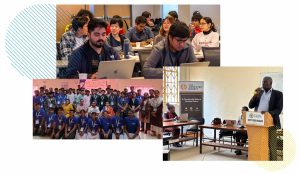
Events like the aforementioned UBCS provide avenues to not only support diversity and inclusion but to cultivate next-generation leaders as well. In fact, in 2023, UBCS drove a near doubling of student chapters in Sri Lanka, increasing them from seven to 12. New chapters were established at the University of Vavuniya, Sabaragamuwa University of Sri Lanka, University of Ruhuna, National School of Business Management, and Gen. Sir John Kotelawala Defence University.
Young Professional Engagement
From additional targeted events at IEEE CS conferences to the establishment of a Young Professional Shadow Board (Advisory Council), 2023 had a focus on engaging early-career professionals. As the future of computer science and engineering, their input will support the evolution of programs provided by IEEE CS. This year’s focus helped to deliver new vehicles for young professionals’ voices to be heard.
Chapter Grants Spark Innovation
The CS Chapters in IEEE Region 10 organized a Summer School from 12–15 Sept. 2023 at Anil Neerukonda Institute of Technology & Sciences (ANITS), Visakhapatnam, India.
Bringing together students from across the globe, the summer school delivered instruction on a variety of skills on the topics of Sensors, Networks & IOT Applications, with hands-on workshops solving real-time problems.
The Summer School exposed students to leading-edge technologies in IoT, Computing, Networks and also industry requirements to prepare the Third and Final Year students for employment after graduation. IEEE CS Membership & Geographic Activities funded more than 40 local events in 2023. Learn how to get funding for your local chapter activities.
With programs that speak to inclusivity, opportunity, and leader cultivation, 2023 IEEE CS initiatives fueled positive developments in support of the future of the fields of computer science and engineering.
IEEE CS Identifies Emerging Leaders in Computer Science and Engineering in “20 in their 20s” List
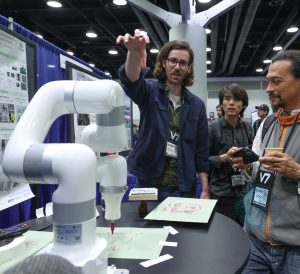 In November 2023, IEEE CS released the inaugural “20 in their 20s” list to celebrate the successes of individuals who are in the beginning stages of their computer science and engineering journeys. Comprised of early-career professionals making an impact on the technical community and their work, the 2023 list includes:
In November 2023, IEEE CS released the inaugural “20 in their 20s” list to celebrate the successes of individuals who are in the beginning stages of their computer science and engineering journeys. Comprised of early-career professionals making an impact on the technical community and their work, the 2023 list includes:
- Asif Ahmed | Software Development Engineer, MoneyView, Whizdm Innovations Pvt Ltd., India
- Olufemi Balogun | R&D Engineer, Operations & Strategy, VAAV Innovative Solutions, Nigeria
- Cybele Ghanem | Implementation and Support Engineer, Invigo, Lebanon
- Ali Ghasempour | Co-Founder and CEO, CyberWise.Space, Estonia
- Saptarshi Ghosh | Systems Design Engineer, Intel Corporation, USA
- Sneha Hegde | R&D Engineer, École Centrale de Lyon / KAPTEOS, France
- Niranjan Kumar | Business Development, Antano & Harini, India
- Ahmed Lachkham | Full-Stack Developer Consultant, Deloitte, Tunisia
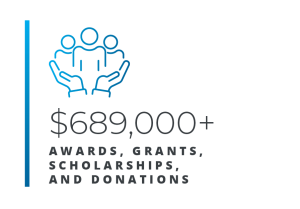 Muthu Mariapan | Senior Engineer, PathPartner Technology, India
Muthu Mariapan | Senior Engineer, PathPartner Technology, India- Sewwandie Nanyakkara | Senior Software Engineer, Sysco LABS, Sri Lanka
- Ariel Nowik | Software DeveloperSoftware Developer, Balanz Capital, Argentina
- Gaurav Pathak | IEEE CS mentor and active volunteer, India
- Lihini Rajapaksha | Administrative Business Analyst, Xyicon
- Abdiel Ramirez | Systems Engineer, Comcast: Digital Media Services, USA
- Dhruvinsinh Rathod | Custom Software Engineering Analyst, Accenture, India
- Christos Roumeliotis | Co-Founder & General Manager, Innovation Bee, Greece
- Shivam Shivam | Engineering Lead, ZS, USA
- Mayesha Tafannum | Client Services Officer – Information Technology, HSBC, Bangladesh
- Shatakshi Tomar | Associate Data Engineer, Lowe’s, India
- Zach Turner | Embedded Software Engineer, L3Harris Technologies, USA
Learn more about award recipients and scholarship opportunities for professionals and students.
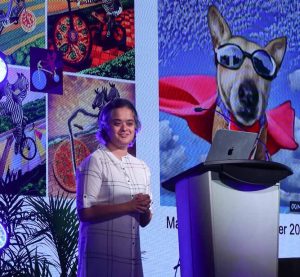 2023 provided a backdrop for the evolution of IEEE CS, the computer science and engineering community, and the profession. The work of IEEE CS helped advance the field, clear a path for new discoveries, and lead next steps in support of the profession.
2023 provided a backdrop for the evolution of IEEE CS, the computer science and engineering community, and the profession. The work of IEEE CS helped advance the field, clear a path for new discoveries, and lead next steps in support of the profession.
With the rise in demand for computer science and engineering comes a drive for knowledge, skills, and progress, and IEEE CS will continue to convene global leaders to help support advancements for the bettering of our world.
That work will mean a continued focus on cultivating diversity and inclusion, supporting emerging technologies, closely following industry developments, and nurturing the next generation of leaders. IEEE will design programs designed to speak to these strategic imperatives, while creating efficiencies that enable more substantive and sustainable connections throughout the global community.
In short, 2023 served as a foundational year for a renewed focus on the future. Its successes will serve as a basis for 2024 initiatives and will amplify and bolster the efforts from the computer science and engineering community in the year to come.
Visit the Press Room to stay updated on the latest news, events, and developments at the IEEE Computer Society.

